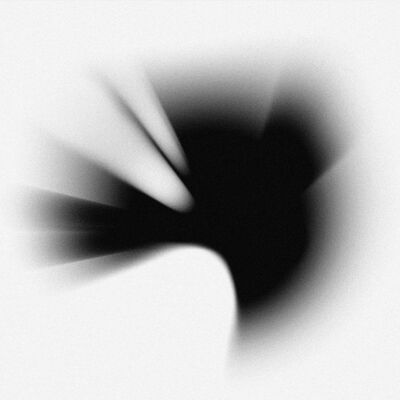| Title | Album | Length | Recorded | Released | Notes |
|---|---|---|---|---|---|
| The Radiance | A Thousand Suns | 0:57 | 2008-2010 | September 8, 2010 |
|
| The Requiem / The Radiance | A Thousand Suns Instrumentals | 3:19 | 2008-2010 |
| |
| The Requiem / The Radiance Acapella | The Requiem / The Radiance Acapella | 3:27 | 2008-2010 |
|
The Radiance
More actions
label_quick_facts:The Radiance
"The Radiance" is the second track on A Thousand Suns, an interlude that transitions directly out of the intro track "The Requiem" and transitions into "Burning In The Skies" all the same.
Background
The song is fairly simple, comprising mostly of an electronic beat, the Oppenheimer speech, and the synth of "Burning In The Skies", concluding with a ambient beat transitioning into the next song.
The song features a sample of Robert J. Oppenheimer's famous speech from his interview to the NBC White Paper documentary series 1965 episode "The Decision To Drop The Bomb". He famously claimed that his first reaction to the bomb test was a recollection of a line from the Hindu sacred text, the Bhagavad-Gita: “Now I am become death, the destroyer of worlds.” Hinduism has a non-linear concept of time in which the great god is not only involved in the creation, but also the dissolution. A common interpretation of the quotation, used by Oppenheimer, translates “world-destroying time” as “death”.[1] He later related that moment as: "If the radiance of a thousand suns were to burst into the sky, that would be like the splendor of the Mighty One."[2] This not only inspired the song's but also the album's title.
"Our whole band watched the clip on YouTube as research. You can really feel the excitement in him, he has created something amazing, but which can cause the world to be destroyed. He does not know how to get into it. It's pretty screwed," said Phoenix.[3]
Mike Shinoda felt the speeches used throughout A Thousand Suns resonate very differently from when they were first delivered but still apply to things that are going on today.[4] According to Chester Bennington, they helped solidify the emotional sense of the album.[5]
The band wrote in the album's liner notes: "Oppenheimer's words resonate today not only for their historical significance, but for their emotional gravity. So, too, A Thousand Suns grapples with the personal cycle of pride, destruction, and regret. In life, like in dreams, this sequence is not always linear. And, sometimes, true remorse penetrates the devastating cycle. The hope, of course, springs from the notion that the possibility of change is born in our most harrowing moments."
Versions
Note: Only the date of the very first release of each version is listed.
| Title | Album | Length | Recorded | Released | Notes |
|---|---|---|---|---|---|
| The Radiance | Live In Madrid | 1:49 | November 07, 2010 | April 1, 2011 |
|
Live
"The Radiance" has been played in its studio form only one time, at the New York City A Thousand Suns release show. Every other performance of the song has had the speech from Oppenheimer replaced by the speech by Mario Savio, which was featured in "Wretches And Kings". This version of the song was played at every show that featured "The Requiem", as "The Radiance" transitions right out of that song. The speech from "The Radiance" was also usually played live, but as an extended outro to "Numb", which also featured Mike singing the chorus of "The Catalyst" through a vocoder.
While not being played on the Living Things cycle in any form, the song made a small appearance starting with the second Brazilian show on The Hunting Party cycle, with the speech being played over the piano outro on the new live version of "Castle Of Glass".
Variations
Last Updated: December 25, 2015
| Type | Description | First Played | Last Played |
|---|---|---|---|
| Alternative | w/ Savio Speech | October 7, 2010 | September 23, 2011 |
Personnel
Lyrics
Robert J. Oppenheimer:
"We knew world would not be the same.
A few people laughed, a few people cried, most people were silent.
I remembered the line from the Hindu scripture, the Bhagavad-Gita.
Vishnu is trying to persuade the Prince that he should do his duty, and to impress him, takes on his multi-armed form, and says, 'Now I am become Death, the destroyer of worlds.'
I suppose we all thought that, one way or another."
External Links
References
- ↑ Oppenheimer quotes: the story behind 'Now I am become Death, the destroyer of worlds' | WIRED UK, August 09, 2017
- ↑ J. Robert Oppenheimer, Atom Bomb Pioneer, Dies, February 19, 1967
- ↑ Phoenix : Swedish Daily News Interview | The first ever Indian Linkin Park fansite, June 2011
- ↑ Linkin Park pay homage to Public Enemy on new album | NME, September 06, 2010
- ↑ LP Underground Newsletter: Anniversary Edition

